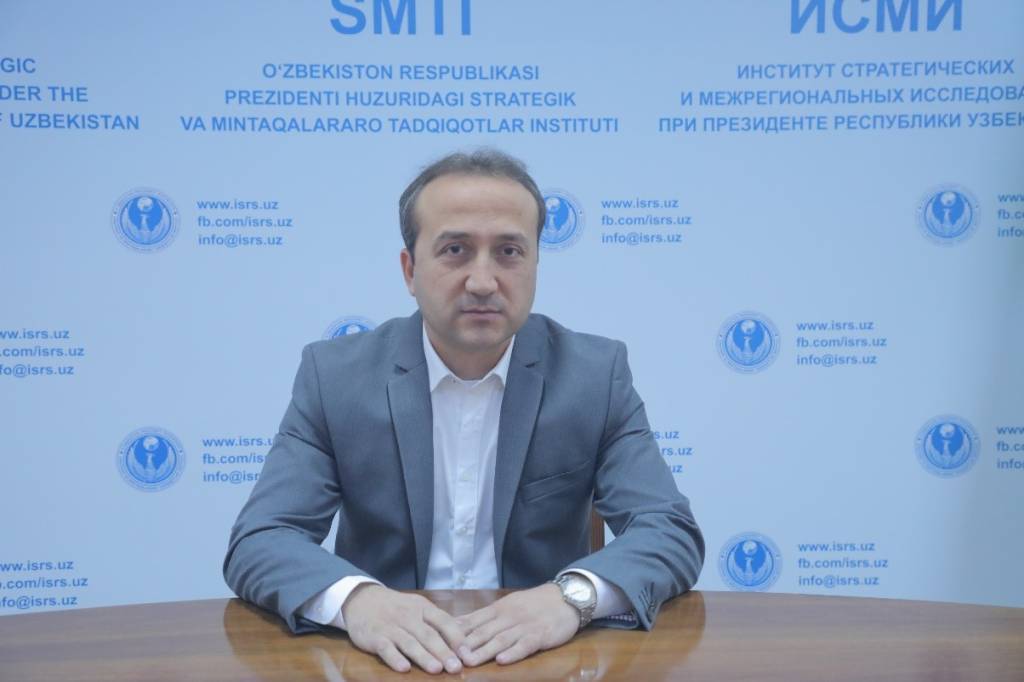
A significant event in recent days in the foreign policy of the Republic of Uzbekistan was the state visit of President Shavkat Mirziyoyev to China on May 18-19 this year to participate in the First Summit of the Heads of State in “Central Asia – China” format.
Addressing the event, the Leader of Uzbekistan put forward several important initiatives to enhance further mutually beneficial cooperation between the countries of Central Asia and the People’s Republic of China.
One of the main areas of functional interaction between China and Central Asian states, Shavkat Mirziyoyev designated the transport and communication sphere.
In particular, emphasizing the strategic importance of developing safe and shortest transport corridors connecting China with the region, with access to Europe, the Middle East, and South Asia, Shavkat Mirziyoyev emphasized the importance of the speedy construction of China – Kyrgyzstan – Uzbekistan (CKU) railway.
In this context, it should be noted that on May 18 this year, a tripartite document was signed in Xi'an between the National Development and Reform Commission of the People’s Republic of China, the Ministry of Transport and Communications of the Kyrgyz Republic, and the Ministry of Transport of the Republic of Uzbekistan, which provides for concrete steps to implement further the railway construction project “China – Kyrgyzstan – Uzbekistan”.
To date, the parties have already completed the feasibility study development for this project and conducted its tripartite joint assessment. Participants are now developing a detailed design, conducting research, and defining an investment and funding model.
Speaking about the advantages of this strategic railway line, attention should be paid to the following points:
First, China – Kyrgyzstan – Uzbekistan railway will meet the goals of the Central Asian states to diversify transport routes and increase the region’s competitiveness as an international transport and transit hub. The total length of the highway will be about 454 km, of which 280 km will pass through the territory of Kyrgyzstan.
It is planned to build 18 stations along the line, 81 large and medium bridges with a length of 26.1 km, and 41 tunnels with a distance of 120.39 km. The total length of bridges and tunnels will be 146.49 km, that is, 47 percent of the entire length of the line.
According to preliminary forecasts, the reduction of the route from East Asia to the countries of the Middle East and Southern Europe will be about 900 km, and the delivery time of goods will be reduced by 7-8 days. This, in turn, will increase the attractiveness of the countries of Central Asia as a center of international trade and will contribute to the intensification of intra-regional and diversification of extra-regional business, as well as the formation of Central Asia as a link between Asia and Europe. This is especially important since the volume of trade between these two continents, according to ESCAP, is 55 percent of world trade.
Second, the construction of the railway can provide access to the markets of Southeast Asia by joining the trans-Afghan transport corridor “Termez – Mazar-i-Sharif – Kabul – Peshawar”. In the future, the implementation of the railway project and the construction of the trans-Afghan corridor will make it possible, within the framework of the Belt and Road Initiative, to connect China with the countries of South Asia by alternative routes. In this regard, the issue of these projects’ speedy implementation is consonant with China's position.
Taking into account these factors and the transport connectivity of China and the Central Asian countries, Shavkat Mirziyoyev, as a priority, stated the importance of linking national programs for developing transport communications.
Of course, this will provide an opportunity to develop a single long-term strategy between China and Central Asian countries in the transport and communication sphere.
Third, this highway will expand the economic opportunities of the Central Asian states by connecting the transport and logistics infrastructure of the region to the maritime trade networks.
The issue is coming to the fore today when landlocked countries’ GDP grows 1.5 percent slower due to higher transport costs, and trade is 30 percent less than in landlocked countries.
This will also provide the domestic market with the necessary goods and facilitate the influx of high technologies and foreign investment to modernize the economies of the Central Asian countries.
Fourth, the implementation of the project will give a powerful impetus to the technological development of the transport industry, will become a trigger for the development of related sectors of the economies of the Central Asian countries, especially in the mining and metallurgical industries, and will allow the development of mineral deposits located along the railway line to be put into economic circulation. All this, in turn, will bring industrial cooperation to a new level and facilitate production and entry into the markets of third countries with high-value-added goods.
Summarizing, we can state with confidence that the implementation of the China – Kyrgyzstan – Uzbekistan railway construction project, which will undoubtedly become a reliable and uninterrupted economic corridor between China and the Central Asian states, will bring a unique opportunity for China and the countries of the region to enter the markets of vast Eurasia and accelerate the pace of national economic growth.
Moreover, the implementation of the project for the construction of the railway and the transport corridor “Termez – Mazar-i-Sharif – Kabul – Peshawar” will turn the region into one of the essential sections of the international transit corridor “East – West”, as well as increase the possibilities of the international transport corridor “North – South”. Ultimately, this will enable the Central Asian countries to participate in the intercontinental transport system actively, a key link in the global production and logistics value chain.
Jasur Rakhmatov,
Chief Researcher at the Institute for Strategic and Regional Studies under the President of the Republic of Uzbekistan